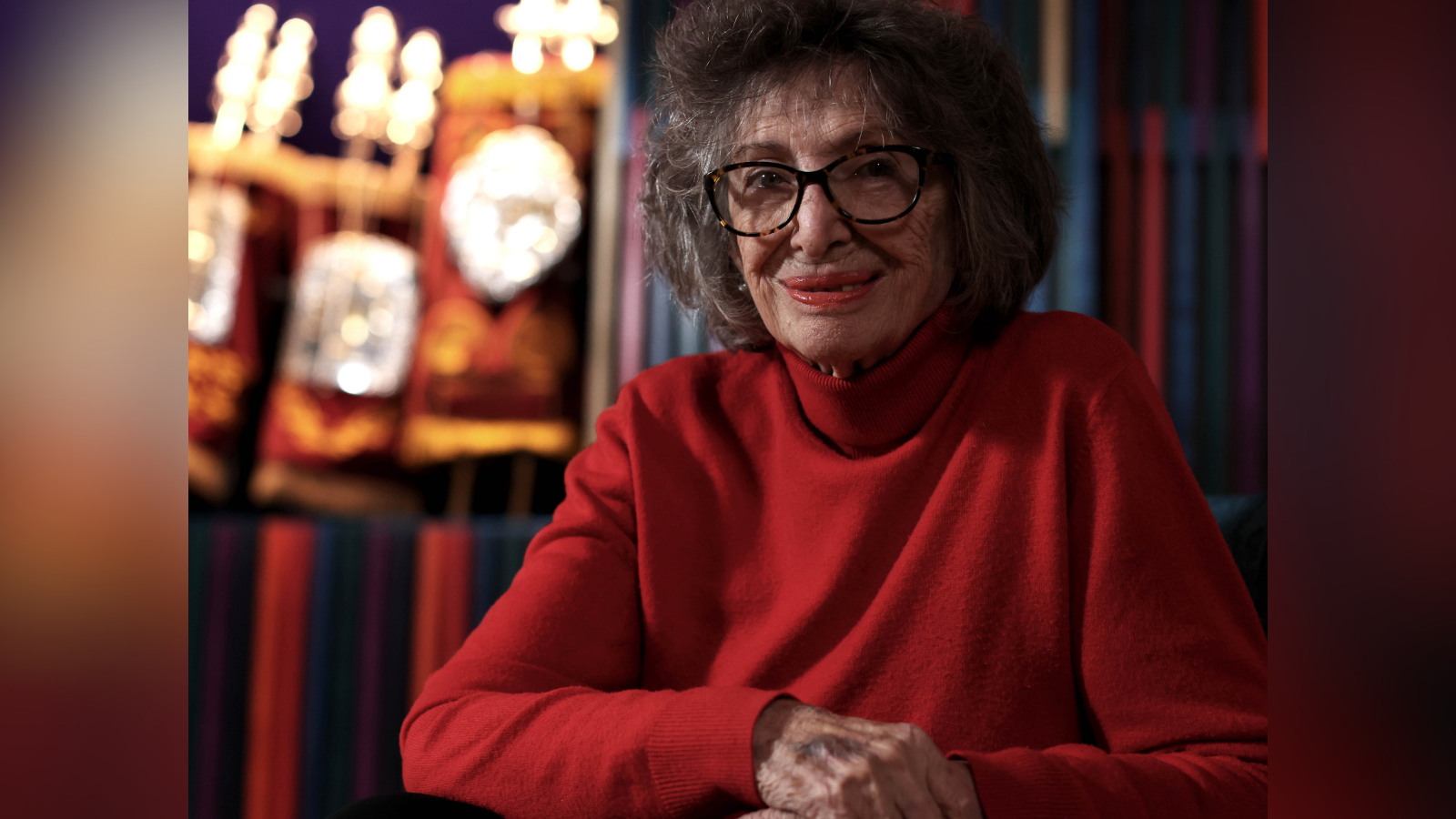Holocaust survivors' families visit refugee site
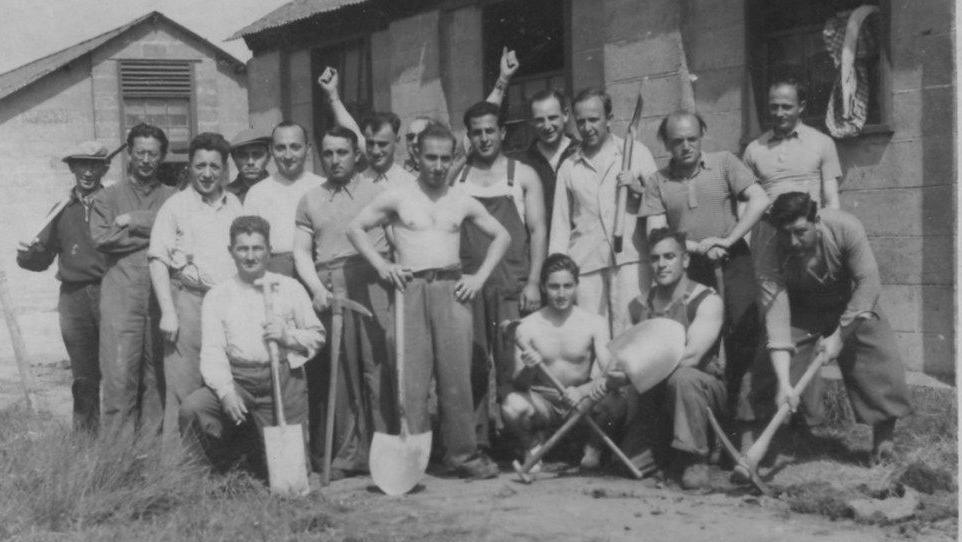
About 4,000 men received refuge at the site near Sandwich
- Published
Families of Holocaust survivors have visited a Kent army base that helped rescue thousands of Jewish men.
The members of the Association of Jewish Refugees (AJR) visited the Kitchener Camp at Sandwich on Thursday, which had been a haven from the Nazis for their parents and grandparents in 1939.
The group also saw an exhibition at the town's Guildhall Museum which had materials from the Kitchener Camp Project – an online resource bringing together records and family treasures to build a picture of the unlikely sanctuary.
That website's founder Clare Weissenberg described the day's visit as "profound".
"Werner, my father, always kept a suitcase of letters, documents and photographs under the bed at home, all of which never saw the light of day," she said.
"I was in my early 20s when he died, which is when I found paperwork with the German eagle insignia stamped on it.
"So I began wondering about his story."
Whilst volunteering at The Wiener Holocaust Library in London, Ms Weissenberg met the author Clare Ungerson, who had been chronicling the lives of families just like hers.
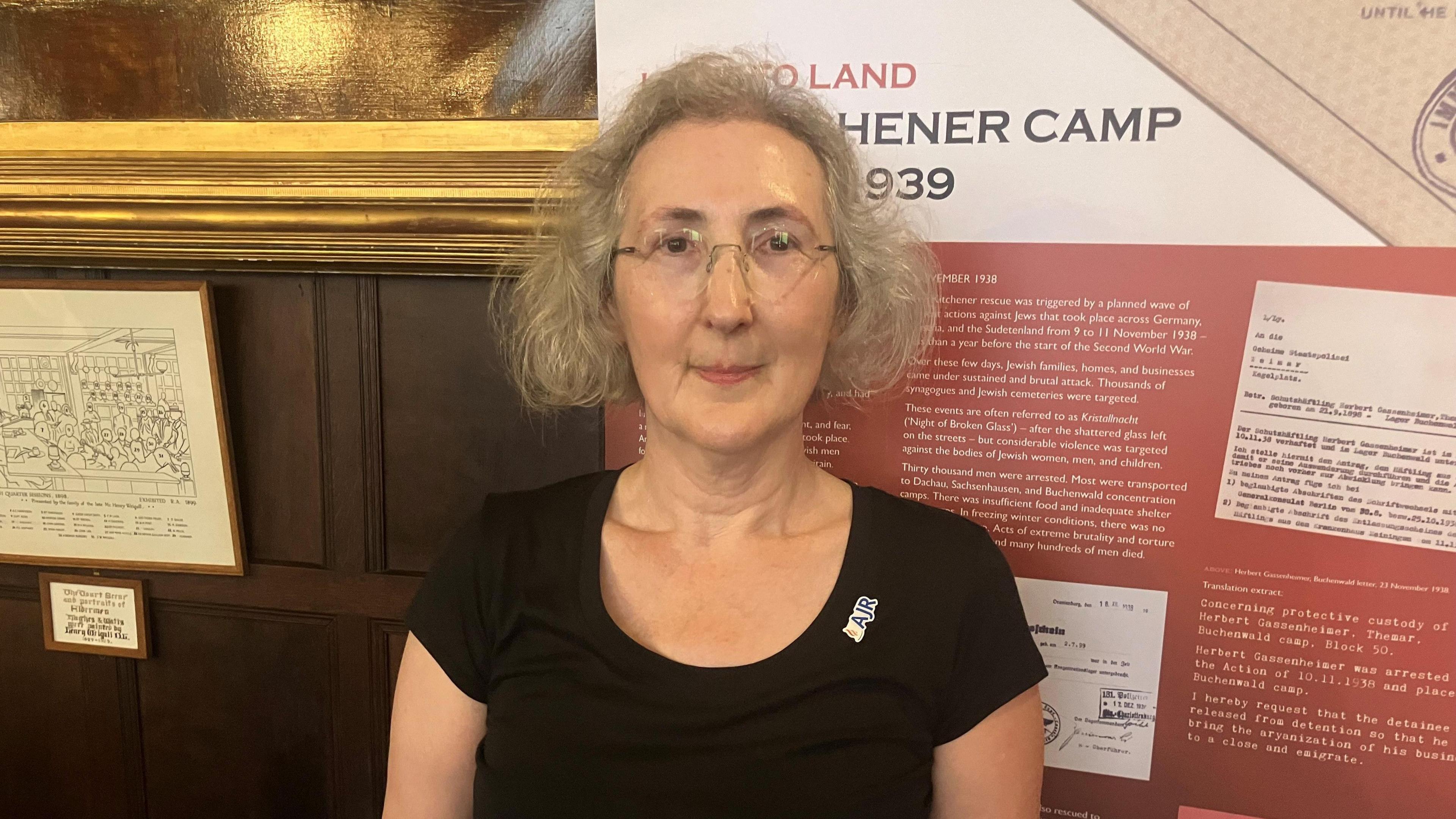
Clare Weissenberg called Kitchener Camp a "largely forgotten and overlooked piece of history"
Hearing tales of some 4,000 others who had similarly fled to Kent to escape Hitler's campaign of ethnic cleansing was like "a cork being taken out of a bottle", she said.
"Afterwards I set up a Kitchener Camp website and got a great response from all over, with people sending me their own experiences.
"It really seemed to grab everyone's imagination and I gradually built a picture of this largely forgotten and overlooked piece of history."
The Kitchener Camp rescue began in February 1939, seven months before the outbreak of World War Two and shortly after the Nazis coordinated a wave of antisemitic violence known as Kristallnacht, or the Night of Broken Glass.
The rescue was founded and run by the same, mainly Jewish, aid organisations that funded and coordinated the far better known Kindertransport scheme.
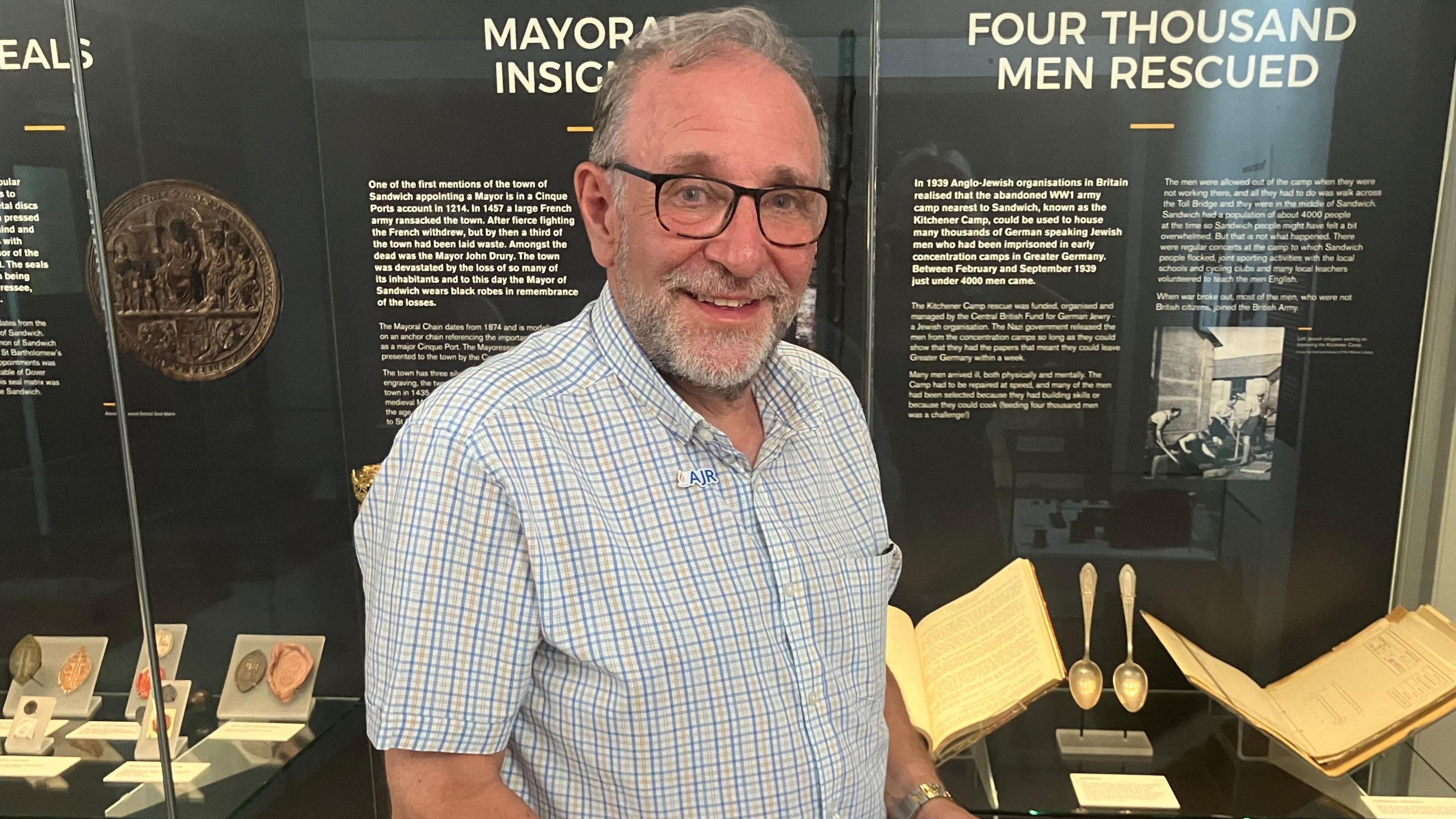
Stephen Nelken found out about his father's wartime experiences after reading his diary
Stephen Nelken said his father Lothar had escaped fascism and a lengthy internment at a concentration camp.
"I found his diary from when he left Germany and came to Kitchener Camp," said Mr Nelken, adding that the people of Sandwich had been "very welcoming" to his dad - even buying him and his fellow refugees a round of pints at the local pub.
"It's really important to know what went on and that it is passed onto his grandchildren as well," he said.
Ms Ungerson, whose book Four Thousand Lives is about the Kitchener Camp, said she was "surprised how few of these men's descendants knew anything of what happened to their fathers, grandfathers and uncles".
"And, to be so at ease with having a camp of refugees in its midst, Sandwich must have been an extraordinary place," she added.
Follow BBC Kent on Facebook, external, on X, external, and on Instagram, external. Send your story ideas to southeasttoday@bbc.co.uk, external or WhatsApp us on 08081 002250.
Related topics
- Published26 January 2024
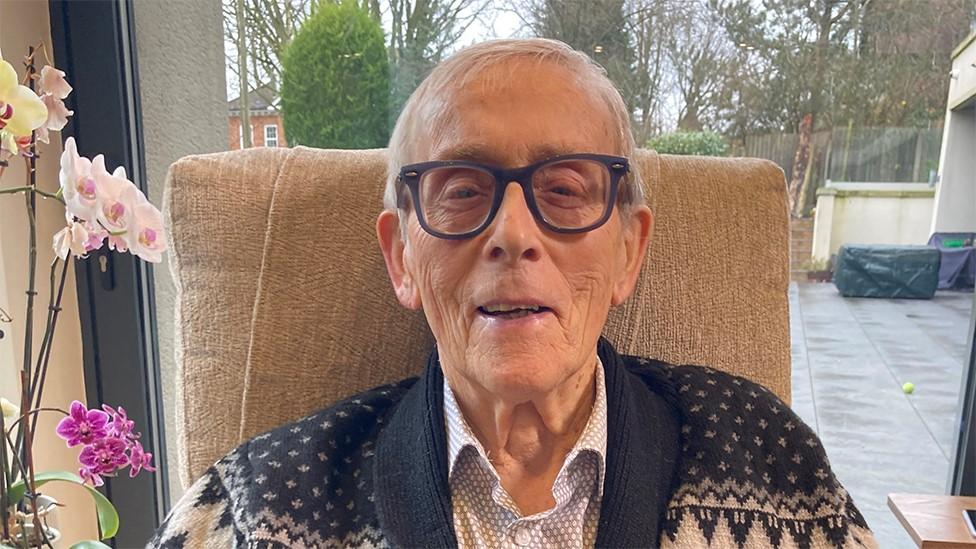
- Published30 January
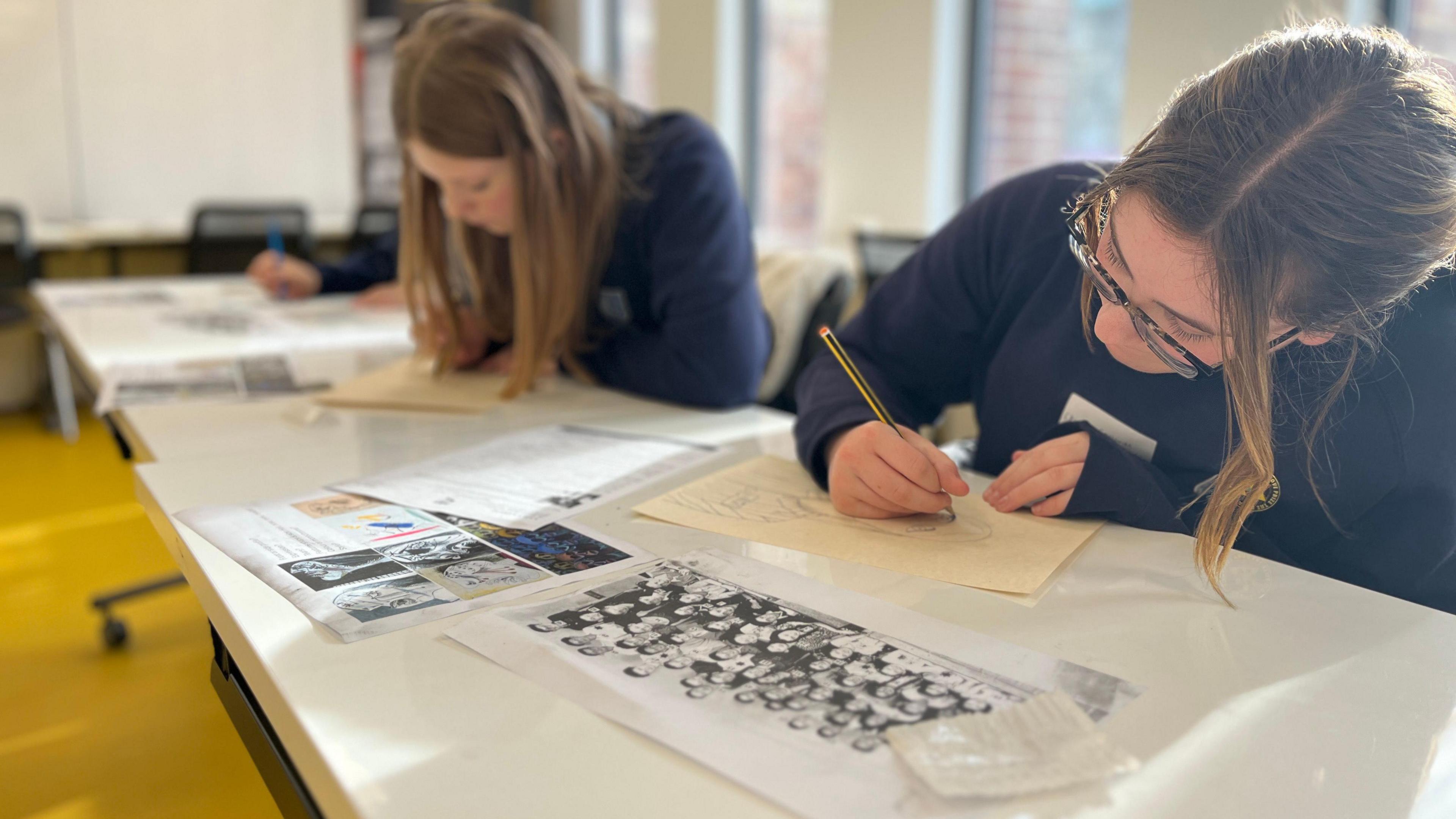
- Published27 January
